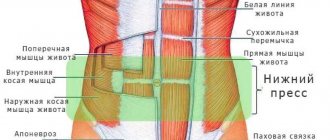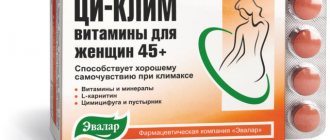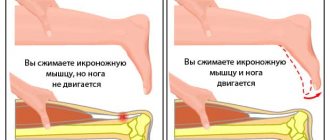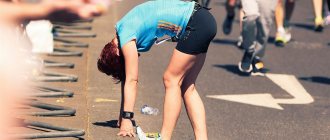Like any disorder in the functioning of the body, overtraining has its own symptoms and causes. These are the ones we will talk about now, after which we will figure out how to treat it and what to do to avoid this phenomenon during active training.
The overtraining effect is an imbalance between recovery and training. Often, the cause of the symptom is the frequent performance of the same exercises with an inadequate number of repetitions. That is, in fact, the athlete trains almost every day with the same list of exercises, which is a common mistake for novice athletes.
In addition, overtraining can cause:
- insufficient rest time (how to properly recover after training)
- poor nutrition (deficiency of vitamins, complex carbohydrates, calories and other components)
- lack of sleep
- frequent stress
- overly intense workouts
Despite the frequent discussion of overtraining on websites and forums, professional athletes deny its existence. We can agree with them if we add that such a symptom does not exist in an experienced athlete. It’s easy to explain this fact, because a professional person knows everything about bodybuilding, including the need to maintain a constant regimen and proper nutrition. He knows what cannot be neglected, which is why he is not familiar with overtraining.
In fact, if you approach your training wisely, you will most likely avoid this symptom. Interestingly, there is an opinion that professional athletes also have overtraining. But such a statement has no basis, because a professional is a professional to avoid mistakes. Moreover, given the constant use of steroids and the huge amount of food and rest, the possibility of the appearance of symptoms of this “disease” is excluded.
What is overtraining
Overtraining is the body's inability to adapt to the load that you set. Most often this happens when you train too often and too intensely, and at the same time do not give your body enough resources to grow. Under such conditions, the muscles simply do not have time to recover. Sooner or later, almost every athlete faces this.
During overtraining, catabolic processes in the body prevail over anabolic ones. The stress hormone cortisol begins to be intensively produced, which stimulates the breakdown of muscle tissue. The body is under serious stress, and in order to overcome it, it needs more recovery resources. First of all, we are talking about sleep and nutrition. If you train in the gym 5-7 times a week, sleep 5 hours and eat 2-3 times a day, then there can be no talk of any recovery or progress, but overtraining will occur very quickly. You'll just burn your muscles.
Overtraining is associated not only with physiological, but also with psychological factors. Regular training, a constant regimen, following proper nutrition... over time, all this turns into hard labor, and the central nervous system begins to react to such a routine accordingly. Add to this everyday problems, nervous tension, accumulated fatigue, constant workload, and you will understand what your psyche experiences during a period of overtraining. In order for sports to continue to be enjoyable and progress to resume, psychological relief is required.
In this article we will look at how overtraining manifests itself in an athlete, what types of overtraining there are and what consequences it leads to.
Bodymaster.ru recommends Fitness Trainers:
Physiologists divide these factors into medical ones, which include depression and anxiety, and behavioral ones (chronic stress, smoking, social isolation, lack of sleep, unhealthy diet.
The truth is as old as time. Less stress, moderate physical activity and good sleep - and you will protect your nervous system. A strong nervous system will never open the door to overtraining in your body!
If you still cannot avoid overtraining syndrome, immediately seek help from physiologists and psychotherapists!
Signs of Overtraining
Like any other illness, overtraining has certain symptoms and causes. It doesn't develop in a day or two. Conventionally, overtraining can be divided into several stages.
Overwork
You feel that you have become more tired after work or school, and you no longer have enough strength for a full workout. But you still go to the gym and increase the existing stress. Efficiency and concentration decrease. It becomes more difficult for you to do mental work.
Overworking is not difficult to overcome. You just need to get enough sleep, consume more carbohydrates, eat more vegetables and fruits, take a vitamin-mineral complex, exercise less often and relax more. Also try to avoid stress, quarrels and conflicts as much as possible - all this negatively affects your central nervous system. If this is not done, then after a few weeks overwork will move into the next phase - overexertion.
Overvoltage
You no longer feel like you are recovering from your workouts. My muscles are constantly sore, and it is impossible to fully train in such conditions. Strength and endurance drop, the desire to go to the gym completely disappears.
At this stage of overtraining, many athletes turn to powerful pre-workout supplements and fat burners, often exceeding the manufacturer's recommended serving size by 2-3 times. However, this is not a solution to the problem, but on the contrary, it aggravates it. When the body's potential is exhausted, it is necessary to give it a rest, and not to push it by taking stimulants. As a result, you get even more muscle strain, a depleted central nervous system and “killed” adrenergic receptors.
This is a mistake most athletes make when trying to overcome the symptoms that arise from overly intense training. This state is followed by real overtraining, which will take time and an integrated approach to overcome.
Unusual reactions in the body
Muscle tone disappears, you feel that you have significantly lost muscle mass, strength, endurance and flexibility. Any load is perceived by the body heavier than before. You experience constant sore throat, insomnia appears, and the quality of your sleep deteriorates. Your appetite disappears, you stop getting the right amount of nutrients from food, which leads to a decline in muscle mass.
Sometimes, on the contrary, you develop cravings for sweets and unhealthy foods, due to which you gain excess fat, and muscle tissue continues to break down due to increased secretion of cortisol. The cardiovascular system malfunctions, the pulse noticeably increases at the slightest load. Your immunity drops and you become more susceptible to viral diseases. Irritability and short temper appear, apathy towards everything develops. This occurs by decreasing testosterone levels and increasing estrogen levels.
Duration of treatment and prevention
Restoring the body will take quite a long time. It is impossible to indicate exact dates, since everything depends on individual characteristics. It can be argued that a person has coped with overtraining when progress appears after training.
In order not to treat this condition, you need to take preventive measures in a timely manner. It is as follows:
- balanced loads or periodization of loads;
- proper rest, sleep at least 8 hours;
- balanced diet;
- timely relief from stress;
- taking adaptogens (if necessary).
The training plan must be built in such a way that each muscle group has time to fully recover. The risk of overwork is significantly reduced by periodizing loads, so every bodybuilder is recommended to practice it.
How to determine overtraining?
The best option is to identify overtraining early, get some rest, and recover before severe symptoms occur.
If you check at least 3 points from the list below, you are most likely beginning to develop overtraining:
- stopping progress in sports results (strength, endurance) or deterioration in performance;
- decreased appetite;
- deterioration in sleep quality, insomnia;
- decreased sexual activity;
- deterioration of physical tone;
- frequent colds;
- regular muscle pain;
- irritability, apathy, loss of attention and concentration;
- deterioration of skin condition.
How to Avoid Overtraining
The first and most important rule is to listen to your body. He himself will tell you when he still has hidden reserves for further progress, and when it’s time to take a break and rest. Sometimes it's better to take a step back and then take two steps forward than to waste a lot of time standing in one place.
Don't exercise too often. Excessive load is the main cause of overtraining, most often it manifests itself in novice athletes. At this stage, three workouts per week is enough for you.
Your training program should be related not only to your athletic goals, but also to the capabilities of your body. Our genetics are designed in such a way that we cannot produce maximum performance every day. The load needs to be dosed. To do this, it is recommended to follow the principle of periodization.
This approach has been successfully practiced in strength sports for several decades. Its meaning is that we vary the load within one microcycle. For example, we alternate heavy and light workouts or do a week of hard, then medium, and then light workouts. Sometimes it’s even worth taking a week of complete rest. This will guarantee complete muscle recovery.
In addition, progress will come faster because you:
- you will set the load on all types of muscle fibers;
- improve your exercise technique and develop your neuromuscular connection;
- avoid stress on the nervous system;
- teach your body to produce maximum performance on schedule.
Focus on maintaining optimal nutrition and recovery. The more often and more intensely you exercise, the more your body needs to rest. Get at least seven hours of sleep. If you can sleep longer, this will only be beneficial. Daytime sleep also helps muscles recover. It is also important to ensure that a sufficient amount of nutrients enters the body with food.
An approximate diagram of how to regulate this moment is below:
| Number of workouts per week | The body's need for macronutrients (in grams per kilogram of body weight) | ||
| Squirrels | Fats | Carbohydrates | |
| 2-3 | 2 | 1 | 6 |
| 4-5 | 2,5-3 | 1 | 7 |
| 6-7 | 3-3,5 | 1 | 8 |
We are mainly interested in animal proteins from various sources - chicken, turkey, red meat, fish and seafood, dairy products, sports nutrition. Instead of saturated and harmful trans fats, it is better to choose unsaturated fatty acids - olive and other vegetable oils, nuts, avocados.
It is recommended to additionally take fish oil or flaxseed oil: these products have many health benefits. We are interested in carbohydrates with a low glycemic index: various cereals, durum wheat pasta, vegetables. They fill the body with energy and do not contribute to the accumulation of excess fat. If you absolutely do not want to deny yourself your favorite dishes that cannot be called healthy, make sure that they make up no more than 15% of your diet.
It is important to maintain water-salt balance in the body. Drink at least 2.5 liters of water per day and regularly take a vitamin and mineral complex. B vitamins, potassium, magnesium and zinc are especially important for the athlete’s body. They improve metabolism, cardiovascular function and the production of sex hormones, which directly affects your performance in the gym, recovery and muscle growth.
However, proper nutrition is not everything. To minimize the risk of overtraining, you need to recover correctly. Muscle recovery is impossible without a good night's sleep, since the microtraumas that you inflict on muscle fibers during training begin to heal only in conditions of complete relaxation of the body. You need to sleep at least 8 hours. If you have trouble falling asleep and have poor sleep quality, you can use melatonin.
The third aspect that will help you avoid overtraining is limiting stress factors as much as possible. Training is in itself a serious test of the body’s strength. Do not add to this problems in your personal life, difficulties in work or study, accumulated nervous tension, quarrels and conflicts. All these factors provoke the production of cortisol. Training in such conditions is difficult and dangerous. The calmer life is, the more optimal the conditions for further progress.
Self-diagnosis
In general, recognizing overtraining is quite simple if you pay enough attention to your health. In most cases, men brush off short-term deterioration in health, but continue to exercise, aggravating the problem.
The self-diagnosis algorithm is as follows.
- Monitor your heart rate for several days. An elevated heart rate (tachycardia) at rest is a typical sign of overtraining in an athlete.
- Analyzing the quality of the exercise and the number of approaches will help you soberly assess your physical fitness. In such cases, a training diary, which the athlete keeps throughout the entire time, comes to the rescue. If there is no exercise diary, you should start one, noting the number of approaches and repetitions of all exercises and the weights used. If you notice a deterioration in your results, you should think about getting proper rest, as this may indicate exhaustion.
- Analysis of sleep phases. This is where a fitness tracker with this option will come to the rescue. Intermittent sleep, an increase in the duration of rest compared to the usual need, and a feeling of exhaustion in the morning - all this indicates exhaustion of the nervous system. Another symptom of the pathological condition are night cramps, sudden restless leg syndrome and nightmares.
In addition to the physical condition, it is imperative to evaluate your psycho-emotional health. Overtraining is accompanied by apathy and depression, but they are preceded by outbursts of aggression and irritability. For self-diagnosis, you can use questionnaire tests to identify depression, anxiety disorder or neurosis.
Procedures to prevent overtraining
In order for the body to adequately perceive the stress imposed by strength training, the training process will have to be optimized. It's about warming up and cooling down. Warm-up will prepare all body systems for full-fledged work. It is important to gradually “get involved” in the work, and not immediately start with heavy weights. This way you will not overstimulate your psyche and minimize the risk of injury.
The warm-up complex includes: light cardio exercise, joint exercises, static and dynamic stretching, strength exercises with light weights.
Cooling down is the first step towards recovery. Take 5-10 minutes to rest at the end of your workout: it’s extremely useful to just lie down on a fitness mat and relax. Feel how your pulse returns to normal, your muscles become less stiff, and your consciousness becomes clearer.
Powerful means of restoring muscle tissue and increasing the overall tone of the body:
- bathhouse, sauna and hammam;
- hardening;
- taking adaptogens (extracts of Leuzea, Eleutherococcus, Schisandra, ginseng, Rhodiola, etc.);
- sexual activity.
Overtraining[edit | edit code]
Decrease in performance due to overtraining
Athletes talk about overtraining.
Overtraining
- a physical, behavioral and emotional state that occurs when the volume and intensity of the training program exceeds recovery capacity. Overtraining causes progress to stop; moreover, a decrease in strength and mass is possible. Overtraining is one of the most common problems in bodybuilding, but it can affect sprinters and other athletes as well.
Causes of overtraining[edit | edit code]
Overtraining often occurs among beginners who subject an unprepared body to serious loads, as well as among professionals whose progress decreases and they seek to correct the situation by increasing the load. The main reason is the excessive pursuit of your sports goals. Many people tend to believe that the harder they push themselves in their workouts, the greater their results will be, but this is completely misleading. Bodybuilding and fitness require a special approach, which must be harmoniously combined with human physiology. Like medicine, sport can treat and cause disorders, the only question is the dose.
Recently, information has emerged that overtraining may be a consequence of sports addiction. According to this theory, during training and immediately after it, special substances are secreted into the blood - endorphins, which cause a feeling of euphoria and joy. Some people note a particularly positive state after training, and in the absence of the latter, a state similar to drug withdrawal is observed: a drop in mood, an obsessive desire to go to the gym, and so on. A person tries to visit the gym more often, and eventually overtraining occurs. [1]
In the work of S. Petibois[2], carbohydrate metabolism disorders are even considered as one of the actual causative factors in the occurrence of a state of overtraining in athletes in sports aimed at the primary development of endurance.
Physiology of overtraining[edit | edit code]
Biochemical indicators of overtraining during endurance training
An increase in results in strength and physical condition occurs during the recovery period after training (see Supercompensation). This process takes from 24 hours to several days. According to some data, complete restoration of muscle tissue after high-intensity training requires up to 1 month. If there is an imbalance between the volume of training and recovery time, then the athlete enters a state of training plateau, and then a decrease in all sports performance occurs. A mild degree of overtraining requires several days of rest or a decrease in training activity until the athlete’s physical condition is fully restored. If a more severe degree is allowed to develop, the symptoms will steadily progress and the athlete’s condition will worsen; recovery may take several weeks or even months.
The following factors contribute to the occurrence of overtraining: disruption of the body’s circadian rhythm, illness, fatigue at work, menstruation, poor nutrition, etc. Overtraining develops especially often in bodybuilders, whose specific training is high loads, especially during cutting cycles.
Mechanisms of overtraining:
- Micro-trauma to muscles prevails over the speed of their recovery
- Amino acid deficiency. This condition is also called "protein deficiency."
- During fasting, nutritional deficiency leads to the activation of catabolic reactions, during which muscle breakdown occurs.
- With insufficient recovery, stress and illness, cortisol levels increase, which destroys muscles.
- Overload and exhaustion of the central nervous system during training.
What to do if you are already overtraining?
Treatment of overtraining begins with identifying its causes. This will help you recognize the problem and prevent it from happening again. Try to figure out what caused overtraining: too frequent and intense training, lack of nutrients, lack of resources for recovery, or excessive levels of stress. It is likely that you will find all of these factors as causes.
Recovery from overtraining is quite simple, although it takes a long time:
- First of all, take a good rest from stress. For a week or two, completely forget about everything related to the gym. Walk more in the fresh air, chat with friends, pay attention to your loved ones. As a rule, this is enough to “reboot” a little and in the future take a more balanced approach to sports.
- At the same time, take measures to restore your health. First, adjust your diet: increase the amount of protein and carbohydrates you consume, add a sports vitamin and mineral complex enriched with antioxidants to your arsenal, drink more water and completely give up junk food.
- Start a course of taking general strengthening drugs, such as asparkam, mildronate, riboxin and coenzyme Q10. They normalize the functioning of the cardiovascular system and improve well-being.
- Then slowly start training. It is recommended to start with light jogging and general physical training. Swimming is also great. The workouts are short, no more than half an hour. After this, you can begin light strength training. Use working weights no more than 40% of the previous ones. This way you will prepare your psyche for a smooth transition into sports mode and protect the joint-ligamentous system from possible injuries. You will return to your previous level of intensity and lifting weights in two to three weeks. The main thing is not to rush. Even if you feel that you have already fully recovered, it is better to give your body another week to get used to the load again.
In particularly advanced cases, it is recommended to take a hormone test. Pay special attention to indicators such as estrogen, prolactin and estradiol. Most likely they will be overestimated. Accordingly, the level of free testosterone will be below normal or somewhere around the lower mark. This is the hormonal reason for the decline in your athletic performance. To start training again with the same intensity, you need to restore your hormonal levels. Take a course of testosterone booster: tribulus or D-aspartic acid. They are designed specifically to raise your own testosterone levels in cases where they are low.











